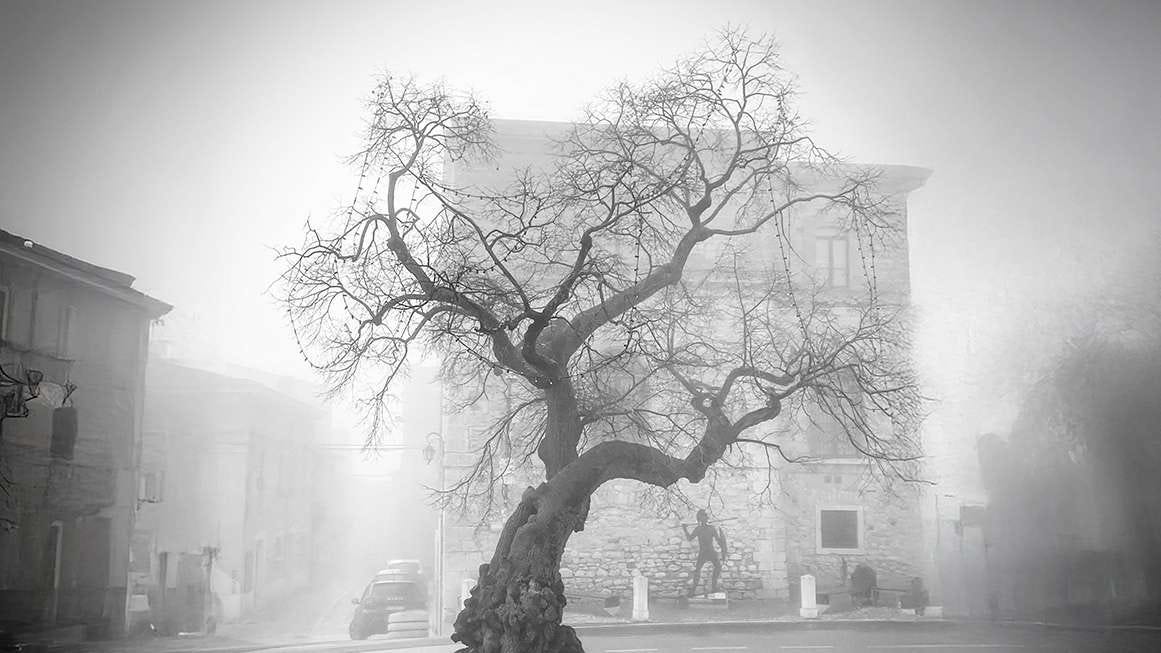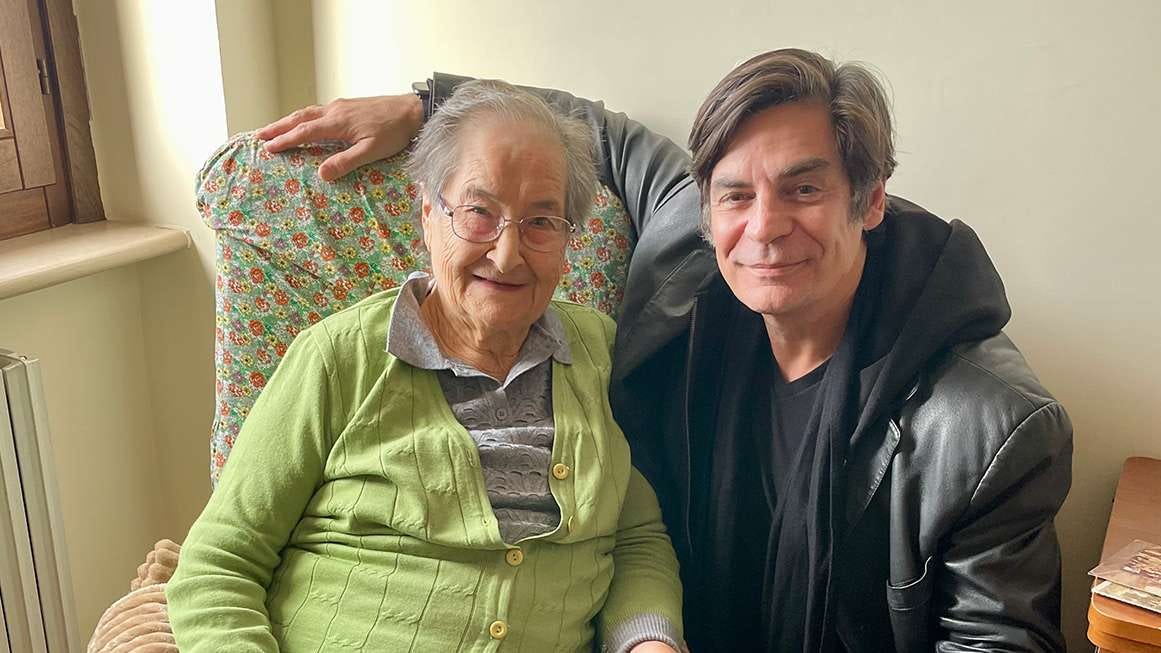The Very Best Sort of Travel
I went searching for my roots and came home unsure about decades of family stories.

Growing up in Middletown, New Jersey in the 1970s, just about everyone I knew had at least one grandparent who didn’t speak English; some even had a parent who spoke English as a second language. This seemed to be the natural order of things, as most of the people I hung out with were European-descended Catholics (read: Irish, Italian, Polish, and few other similar countries) whose families had shown up in America sometime between 1900 and 1924, when the gates at Ellis Island were effectively locked. Our grandparents had poured into cities like Boston, Hartford, New York, Newark, and Baltimore and their kids moved out to the suburbs after World War II. My own parents were the first generation to be born in the United States and they bugged out of Brooklyn by 1967. My father was born to Irish immigrants who came to New York City in the 1910s and my mother’s parents, who never learned English, came from a small town in Southern Italy around the same time. I’ve written in the past a little bit about my Italian grandfather’s journey:
After being processed at Ellis Island, he was taken by a padrone, or Italian job broker, to a quarry somewhere in eastern Pennsylvania (no one in the family knows its precise location) where he worked for a year chiseling rock by hand. At night, the men were so exhausted that they pissed and shit themselves in their cots, unable to get up to use the outhouses. My grandfather graduated to hauling toxic chemicals in Delaware and, during the Depression, dug basements with a pick axe and shovel. He ended up with a series of relatively soft factory jobs in Connecticut.
What is most striking about my grandfather's story is not how unusual it is but how common.
I learned that about Nicola Guida from my Uncle Nick at my mother’s funeral in 1999. Looking back, it was odd that I hadn’t heard it earlier, but I knew the general shape of our family narrative, which was one of deliverance not just from centuries of poverty on both sides but into a world of greater and greater opportunity and agency. My grandparents had made it across the ocean and America was clearly better than where they came from (otherwise, they could have gone back, as about 35 percent chose to). My parents, born in the 1920s, faced real hardships, including grinding poverty even before the Great Depression and World War II (my father and uncles all fought in either World War II or Korea), but everything eventually turned out pretty swell. They literally moved from tenements to single-family houses in the suburbs. And their kids—my cohort—went to college and became masters of our own fates.
When I attended my Uncle Nick’s funeral in 2017 with my two adult sons, I was overwhelmed by the younger relatives who were there. My cousins, like me and my siblings, had fanned out across the country and married in and out of our faiths and ethnicities; our kids bore a resemblance to the past but were something more new and different and hybridized and unfathomable than the mere mixing of Italians and Irish once seemed. In the roughly 100 years or four generations since my grandparents had shown up in New York harbor, we had left Old Europe behind, once and for all.
That is all true, and I am grateful beyond any ability to communicate my gratitude, that my grandparents emigrated to America when they did. The large story is true—they left Europe as peasants and their progeny now live more like kings and queens than they could have ever imagined.
But the details of that story? They only get murkier with time, and with new information. I’m happy to share here a story I wrote for the August-September issue of Reason about traveling to my maternal grandparents’ home village in Italy. I went there seeking connection and confirmation and found something far more interesting and challenging.
Last year I honeymooned in Rome, which was a long day trip from the tiny 2,500-year-old village in the Campania region of Italy that my maternal grandparents left in the 1910s. Of course I had to go—it was surely my only chance to see where that side of my family had come from.
It's a very American thing to travel to ancestral hometowns, especially if your ancestors were fleeing poverty or political repression. Perhaps more than ever, as America grows less sure of its exceptionalism, we want to be reminded that we are lucky to have grown up in the glittering New World rather than the tarnished old one.
But the best sort of travel is that which confounds our expectations rather than confirms our prejudices. And that's what I experienced on a drizzly day in Fragneto Monforte, population 1,700, known for a relic of the 3rd century martyr Saint Faustina, for an ancient and revered tiglio tree in the town square, and, go figure, for a hot air balloon festival that started sometime around the turn of this century.
I had heard only fleeting references to this speck of a town throughout my childhood, and the stories always drove home how backward, stultifying, and impoverished the place was, even for notoriously poor southern Italy. My mother and her siblings rehearsed a particular narrative about why their parents had emigrated; it was persuasive if uncheckable even before my grandparents died in the 1980s. (They didn't speak English; I didn't speak Italian.) The story went like this: There was no future in Italy back then, especially for peasants like my ancestors. Everyone who could leave, did.
The best sort of travel is that which confounds our expectations rather than confirms our prejudices.
Incredibly, my wife had tracked down a relative of mine via Facebook groups and Google Translate. Part of me worried that we were being scammed—I've seen the second season of White Lotus, where Italian-Americans seeking to connect to their roots in the old country are suckered on multiple levels. We took a surprisingly efficient and well-appointed high-speed train from Rome to nearby Benevento (post-Mussolini, it seems, the trains still run on time) and then a cab to Fragneto Monforte, where Pasqualino, my previously unknown second cousin, met us. He was a tall, strapping 50-something construction engineer. He met us with his wife and daughter, who was training in Rome to become a doctor. With his daughter translating, he explained that he was the grandson of my grandmother's sister and his own mother was still alive at 93.
They gave us the grand tour, which took less than an hour, showing us the houses where my grandfather and grandmother had grown up. I searched for my grandfather's initials in the bricks surrounding the tiglio tree. (Family lore had it that he'd scratched them in before he left for America as a teenager.)
I was eager to meet Pasqualino's mother Anna, a cousin my mother had never known or spoken of before dying in 1999. She was spry for a nonagenarian—and though she spoke no English, her gestures, expressions, and sounds instantly reminded me of my mother and grandmother. She lived in a beautiful house that had been in the family for generations; truth be told, it was far nicer than the house I grew up in, or those of my Italian-American relatives, which occasionally veered into plastic-covered couches, mirrored walls, and gold-foil wallpaper. She brought us drinks and snacks and showed me photos from the '70s, when my grandparents had visited.
I told her I was taught that my grandparents (her uncle and aunt) had left for economic reasons and to avoid war. No, said Anna, they were all doing pretty well, even during World War I and World War II and the rebuilding afterward. They and one other were the only family members who left, she said, and it was never clear why.
Did she ever wish her parents had gone to America? No, she answered: This was always a good place to live.
As I hugged this ancient woman with whom I share a real but tenuous connection and whom I will never see again, I felt for a second like I was hugging my own mother one last time. I was also saying goodbye to family stories that may or may not have ever been true.
This is part of Reason's 2025 summer travel issue. Click here to read the rest of the issue.
If you like what I’m posting here, please subscribe, share, and leave a comment. And check out Reason!


Interesting journey. One thing I've noticed about losing family members is how, over time, the loss of each one feels like a hard drive of valuable information being erased forever. We don't just grieve their disappearance, we grieve our inability to ever access all the things they knew. "I'll just ask my mom about th– oh yeah, I can't. Ever." And sometimes we fill in the blanks with "whatever works" which can wind up fossilized as the truth.
As a fellow descendent of Irish and relatively recent Italian ancestors, I really enjoyed reading your story, Nick!